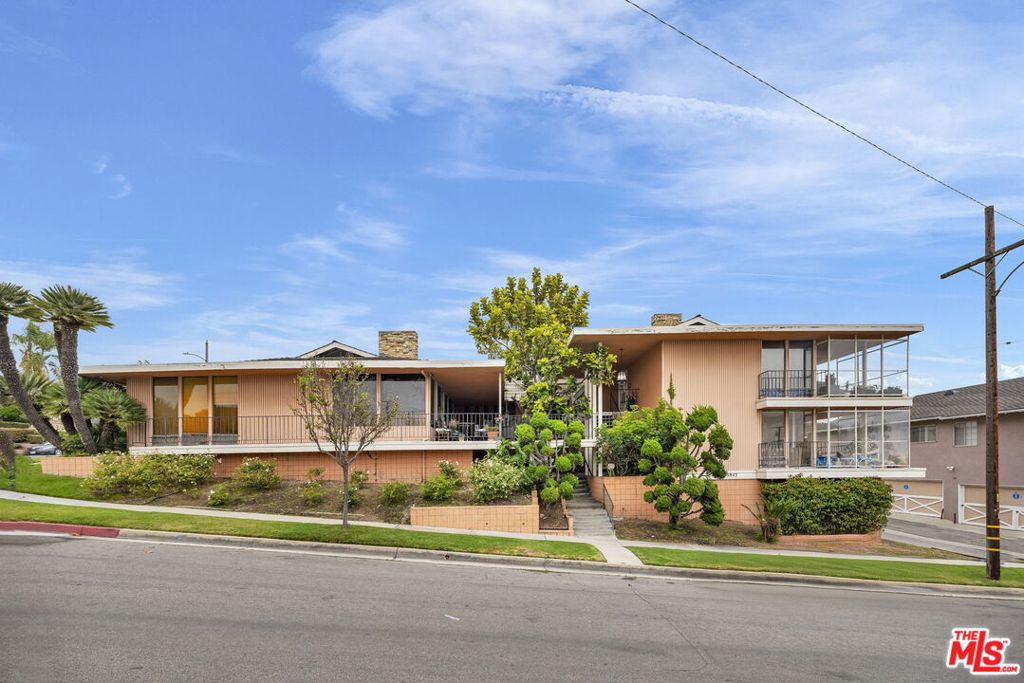The idea behind a 1031 Real Estate Exchange is to keep deferring capital gains taxes when selling an investment property by using the money from the sale to reinvest in another replacement property. (The exchange is often called a “like-kind” exchange for that reason. It’s the same thing.) The CREM Group likes to tell our clients how savvy real estate investors keep their taxes lower even as they make some excellent profits on selling their real estate.
Why is it a “1031” Exchange?
It’s called a 1031 exchange after the Section 1031 part of the IRS Code Title 26 governing the sale of real property. As probate real estate experts, we keep current with all things having to do with real estate in general and probate and trust properties in particular. The trick on these exchanges is to make sure the purchase and sale are a part of an investment, that the properties are similar, and for that reason, are not intended to be used for people looking for a residence.
Example: An apartment building that is rented out and is in someone’s trust would qualify for the beneficiaries’ family to do an exchange if they sold the apartment building and bought another with the proceeds and used that building for rentals.
Here are some more requirements, rules, and details. If every step is followed correctly, the investor can defer their capital gains taxes forever if they keep reinvesting the capital into similar investment properties. We can certainly guide you on these types of transactions.
Exchange Requirements:
Here is a list of requirements we’d recommend our clients satisfy to complete a 1031 exchange.
1. Business Use Rule: The property in question must be used for some sort of productive trade or business use or held for investment.
- Business Use
- Rental (income production)
- Investment (capital appreciation)
2.Identification Rules: When the escrow closes on a relinquished property, the investor has 45 days to identify the replacement property using either:
A.The property rule: Identify up to three similar-use properties of any value
B.The 200% rule: Identify as many properties as you want, but the aggerate value of all the properties can’t exceed 200% of the value of the property being relinquished. (Example: You sold the apartment building out of the trust above for a cool $5 million. You identify three smaller apartment buildings for $4 million each ($12 million for the three). You can’t stuff them into the 1031 exchange because their sum exceeds 200% of the $5 million ($10 million). You could buy two of the three apartments and another rental duplex for $1.5 million, and you’d be okay.)
3.Closing Rules. Investors seeking protection under the 1031 exchange rule have 180 days to close on their replacement property or properties.
4.Qualified Intermediary (QI). The rules say you must use a neutral QI who has not advised you in the last two years. The QI will hold all monies until the transaction is complete, so we recommend securing your QI before the surrendered property’s sale closes. No one wants to rush around at the last minute! We can connect you with QI’s we know and trust.
5.Title Requirements. You must use the same taxpayer ID number in both the surrendered and purchased properties. If you are compliant with the 1031 regulations, and have followed the guidelines here, such an exchange should be completely tax-deferred. Make sure you consult with an attorney and a CPA to ensure your i’s are dotted, and your t’s are crossed.
6.Reinvestment Requirements. To defer all taxes, buy a piece of real estate of equal or greater value than the previous property/properties, reinvest all proceeds into the newly purchased land or building, and then replace the debt value (equal or greater) that encumbered the surrendered property.
What Do We Think?
Trusts, conservatorships, and probates hold all kinds of properties! It’s not always homes, of course. As you’ve seen in our other posts, probate laws protect the families to ensure that the probate transactions are handled smoothly and legally. When an investment property is held in trust, the beneficiaries may want to sell it outright, but they can also protect themselves from a huge tax bill by selling and reinvesting so that the taxes are deferred.
Especially these days, people need to hang on to everything they can. The CREM Group wants you to “Be Prepared,” like the Boy Scouts. We just don’t know what’s around the corner anymore, so hanging on to your money is the best defense. Having your CPA help with these transactions is a good idea. And seeking counsel from trustworthy probate lawyers and incredibly friendly and experienced probate real estate professionals (like the CREM Group) will let you sleep better at night. * * *
As long time probate real estate agents and as attorneys working in and around all kinds of properties in Los Angeles and Orange Counties, the CREM Group has made sure we support our clients, so they know the alternatives to buying, selling, or renting probate, trust, and conservatorship homes and commercial properties in California.
– – – – –
As always, contact us by email here if you have any questions about real estate, probate real estate, conservatorship, or trust real estate properties, especially in Los Angeles and Orange Counties in California.
DISCLAIMER: This content is meant purely for educational purposes. It contains only general information about real estate matters. It is NOT legal advice and should not be treated as such. We recommend consulting a legal or tax professional before acting on any material, opinion, or perspective described herein.
* * *
COVID-19 Safety. As all of us at the CREM Group market and sell our inventory of probate, trust, and conservatorship homes for our clients, we adhere to the COVID-19 regulations set by the California Association of Realtors.



